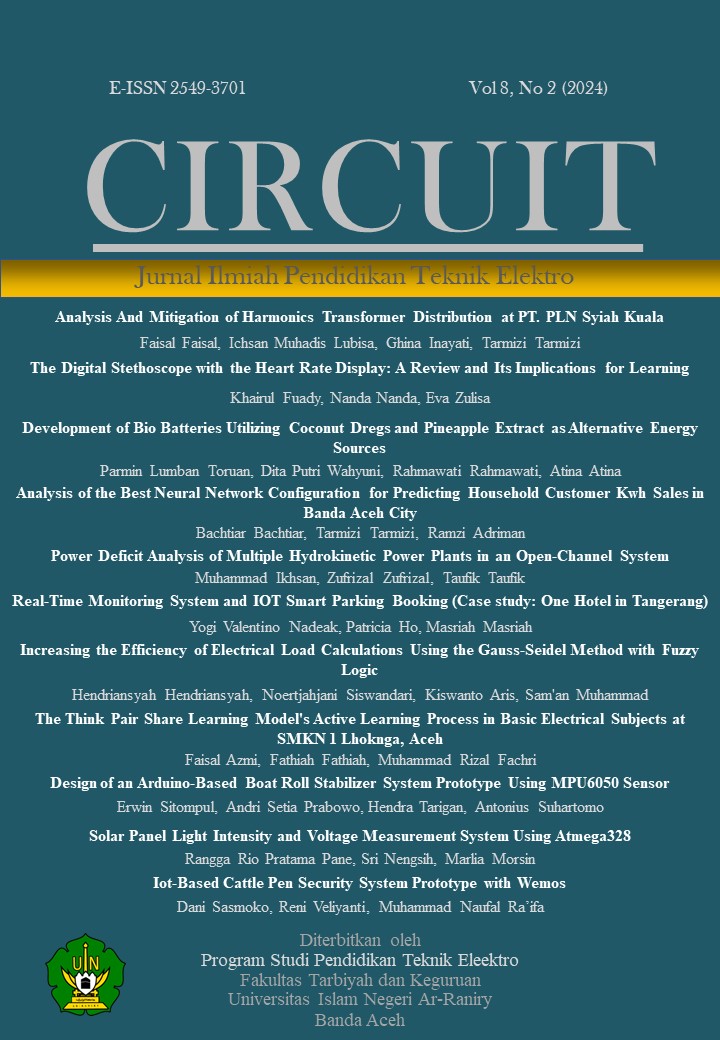Solar Panel Light Intensity and Voltage Measurement System Using Atmega328
DOI:
https://doi.org/10.22373/crc.v8i2.22501Keywords:
Light Intensity, Solar Panel, VoltageAbstract
The need for new renewable energy sources is growing because of several problems, such as high electricity costs, frequent power outages, and dependency on fossil fuels. It's critical to come up with solutions to this problem, like using solar power. Nonetheless, to guarantee a steady supply of energy, solar panels must be well controlled. The primary goal of this study was to create a system that would use an ATmega328 microcontroller, a logger module, and an INA219 voltage sensor, along with a BH1750 light intensity sensor, to detect the voltage and intensity of light on solar panels in real time. The study technique includes the steps of system definition, design, and development using a 4D approach that has been streamlined into 3D. The system's ability to make precise measurements and store data in a readily accessible and processable manner was demonstrated by the test results. Real-time solar panel state monitoring is made possible by the system's primary ATmega328 microprocessor, and data storage in CSV format enables easy analysis. In summary, this system was success for tracking and improving energy efficiency
Downloads
Published
Issue
Section
License
Authors who publish in CIRCUIT: Jurnal Ilmiah Pendidikan Teknik Elektro agree to the following terms:
- Authors retain copyright and grant the journal right of first publication with the work licensed under a Creative Commons Attribution-ShareAlike 4.0 International License (CC BY-SA 4.0) that allows others to share and adapt the work with an acknowledgement of the authorship and initial publication in this journal
- Authors are able to enter into separate, additional contractual arrangements for the non-exclusive distribution of the journal's published version of the work (e.g., post it to an institutional repository or publish it in a book), with an acknowledgment of its initial publication in this journal.
- Authors are permitted and encouraged to post their work online (e.g., in institutional repositories or on their website) prior to and during the submission process, as it can lead to productive exchanges, as well as earlier and greater citation of published work. (See The Effect of Open Acces)

